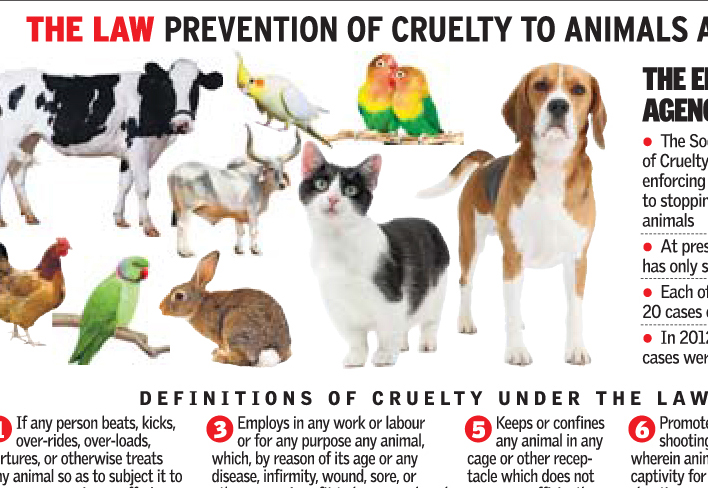Animal cruelty is an abhorrent reality that impacts countless species, highlighting a grave moral failing in our society. Economically disadvantaged individuals often lack the resources for adequate pet care, while societal ignorance about animal needs can perpetuate acts of cruelty, both intentional and inadvertent. Understanding the nuances of animal cruelty charges and their legal consequences is imperative for fostering a culture of respect and compassion for all living beings.
Animal cruelty encompasses a range of offenses, broadly classified into two categories: active cruelty and passive neglect. Active cruelty involves overt acts of violence, such as physical abuse, torture, or killing an animal. This includes behaviors like beating, poisoning, or otherwise inflicting unnecessary suffering. Passive neglect, on the other hand, refers to the failure to provide necessary care—inadequate food, water, shelter, or medical attention are prime examples. This form often stems from ignorance or inability to provide proper care but can be just as damaging to the animal’s well-being.
Each state in the U.S. has its own set of laws that delineate what constitutes animal cruelty. Generally, these laws can be summarized under statutes that address both forms of cruelty mentioned above. Some states have enacted laws recognizing animal cruelty as a felony, while others may classify it as a misdemeanor. The specific penalties prescribed vary widely, influenced by factors such as the severity of the offense, prior convictions, and whether the act was premeditated.
The legal framework surrounding animal cruelty often includes specific charges. Common charges include aggravated cruelty, neglect, and abandonment. Aggravated cruelty—considered the most severe—prohibits actions that cause extreme pain or suffering to an animal, with punishments severe enough to possibly lead to imprisonment. Neglect charges arise when an owner fails to provide basic needs. Penalties for neglect can include fines, mandatory community service, or mandated counseling for the owner. Abandonment charges apply when an animal is intentionally left without care, revealing a blatant disregard for the animal’s survival.
Upon facing animal cruelty charges, the accused often experiences severe repercussions. A criminal conviction can result in substantial fines, community service, and even incarceration. In many jurisdictions, a felony conviction can lead to a permanent criminal record, complicating future employment opportunities and housing possibilities. Beyond legal penalties, convicted individuals may also face civil liabilities, which could involve substantial restitution payments to animal shelters or individuals who aided in the animal’s recovery. Furthermore, individuals convicted of animal cruelty may find it difficult to own or care for animals in the future, as many states impose bans on animal ownership following a conviction.
Additionally, it is essential to acknowledge the broader societal consequences of animal cruelty. The prevalence of such acts can engender a culture of violence, wherein cruelty towards animals may eventually escalate to cruelty towards humans. Numerous studies suggest a correlation between abusive behavior towards animals and violent crimes against humans, highlighting the urgent need for robust measures to combat animal cruelty. Education and awareness initiatives play a critical role in this arena, empowering individuals with the knowledge to recognize and report animal abuse. Communities must rally together to promote awareness campaigns and educational workshops to prevent cruelty before it occurs.
Furthermore, the role of law enforcement in combating animal cruelty cannot be overstated. Many jurisdictions have dedicated animal control officers, who are trained to investigate reports of animal abuse and neglect. These officers often work in tandem with local animal shelters and humane societies. Their collective efforts are vital in gathering evidence for prosecutions and removing animals from abusive environments. The legal processes can be complicated and lengthy; however, a dedicated and knowledgeable response team can significantly expedite amelioration efforts.
In recent years, animal rights organizations have played an increasingly prominent role in advocating for legislative changes that enhance protections for animals. These organizations often work to strengthen existing laws and ensure that violators are brought to justice. Grassroots campaigns, petitions for reform, and lobbying efforts aimed at local, state, and federal legislatures are crucial for evolving animal cruelty laws to reflect contemporary societal values regarding animal welfare.
Public sentiment is gradually shifting towards the protection of animal rights, driven by increasing awareness about the ethical considerations surrounding animal treatment. High-profile cases of animal cruelty often provoke widespread outrage and discourse, galvanizing community action. Individuals spurred to activism can have a significant impact, advocating for changes that lead to more stringent enforcement of animal protection laws and justice for victims.
In conclusion, understanding animal cruelty charges and their legal ramifications is essential for advocating for a more compassionate society. As awareness continues to expand, so must our collective commitment to enforcing laws that protect our voiceless companions. The path toward eradicating animal cruelty is not merely a legal challenge; it is also a moral imperative. Cultivating empathy and responsibility towards all creatures should transcend beyond the courtroom and permeate the fabric of our everyday lives. It is only through collective vigilance and action that we can hope to eradicate the scourge of animal cruelty in our communities.








